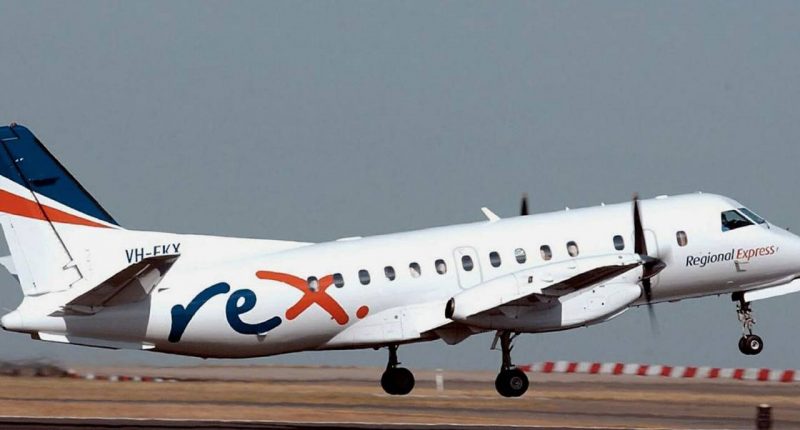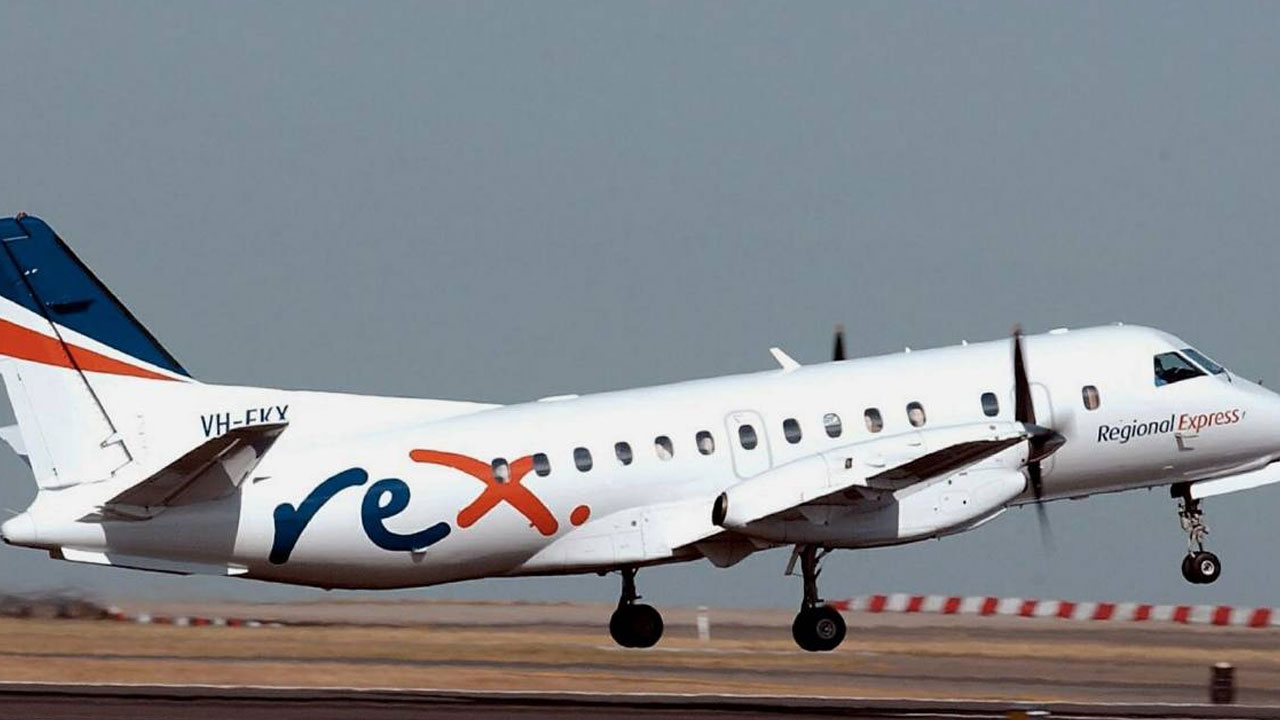- Regional Express (REX) is the latest in a long line of companies withdrawing profit guidance issued for the remainder of the 2020 financial year
- The REX board has sought Federal Government intervention to assist the airline through this period of uncertainty
- In response, the government announced an estimated $715 million bailout package for the industry
- While REX is one of the most resilient and consistently profitable airlines globally, the company believes it may still struggle to survive
- Given the level of uncertainty in the current climate, REX is unable to provide a revised profit forecast at this stage
- Despite the bailout announcement, REX shares fell 14.5 per cent to 71 cents a share by market close on Wednesday
Regional Express (REX) is the latest in a long line of companies withdrawing profit guidance issued for the remainder of the 2020 financial year.
Given the level of uncertainty in the current climate, REX is unable to provide a revised profit forecast at this stage.
The REX board has sought Federal Government intervention to assist the airline through this period of uncertainty. Based on its internal financial modelling of the continued deterioration in the current crisis, REX believes that it will not have enough reserves to sustain more than 6 months of operations. The REX board issued an open letter to Transport Minister and Deputy Prime Minister, Michael McCormack, requesting assistance to survive the crisis.
In the letter, REX outlined the possible impacts on regional and rural communities that would come with the airline’s collapse – in the company’s words, “utter chaos and mayhem [for communities] that depend on regional air services to be their socio-economic lifeline.
“The crisis we are facing is a national emergency of epic proportions not seen since World War II and is not expected to abate for at least nine months.
“Rex warns the government that many of the smaller regional carriers have only weeks of reserves left (rapidly changing to days with the situation deteriorating exponentially). If the pandemic continues to grow at the exponential rate of the past week then impactful actions need to be taken in the next two weeks to prevent irreversible damage being done to most regional carriers.”
REX further outlined how, despite its strong financial position, it will require assistance to survive the crisis: “Rex is a very strong airline with no debt and probably only one of five airlines worldwide that managed to maintain uninterrupted profits since 2003 in spite of a series of global economic and environmental shocks – wars, fuel prices above USD120 a barrel, volcanic ash, GFC, the worst drought in 120 years, catastrophic bush fires, crippling pilot shortages and the list goes on.”
“Yet even Rex cannot survive the next six months of this global emergency if the forecast of worldwide health experts materialises,” the company affirmed.
In addition to REX’s statements, the CEO of the International Air Transport Association, Alexandre de Juniac, has issued an urgent call to all governments.
“Airlines would need emergency measures to get through the crisis, and governments should be looking at all possible means to assist the industry. Extending lines of credit, reducing infrastructure costs, [and] lightening the tax burden are all measures the governments will need to explore,” Alexandre urged.
“Air transport is vital, but without a lifeline from governments we will have a sectorial financial crisis piled on top of the public health emergency,” he continued.
The Australian government has already responded with an estimated $715 million dollar relief package through which fees and industry levies will be waived – including aviation fuel excise, the Airservices charges on domestic airline operations and domestic and regional aviation security charges.
Mr McCormack says, “Our airlines run on tight budgets at the best of times and these past few weeks have been particularly tough. I’ve been speaking with Australian airline executives every day and will continue to work with them to make sure they receive the support they need.”
The Rex Board has initiated a suite of measures to reduce costs and conserve cash and will soon announce drastic schedule reductions as well as dropping some routes altogether.
However, the Board’s financial modelling, based on a very conservative projection of a 25% reduction in passengers in the next six months, shows that all the extreme measures it is putting in place will still be grossly inadequate as the impact of this crisis will be several orders of magnitude greater than the worst it has experienced in the past.
Rex, like most businesses in Australia, is already seeing the severe impact of the drop in business due to Covid-19.
Given the ongoing uncertainties around the possible local and global impacts of the virus pandemic, it remains to be seen if and how REX and other air service providers will survive the ongoing crisis.
Regional Express shares are down 14.5 per cent despite the bailout package announcement. At market close on Wednesday shares were trading for 71 cents apiece.








